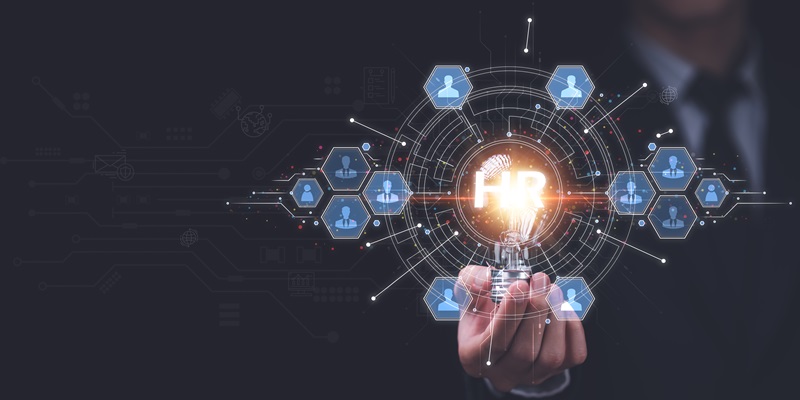The realm of human resources is on the cusp of a significant transformation due to the rapid advancement of artificial intelligence technologies. As enterprises adopt these cutting-edge tools to enhance operational efficiency, a new challenge emerges—ensuring the responsible deployment of AI systems. This objective remains critical regardless of potential changes in federal AI oversight, particularly in light of the 2024 election results. It is essential to recognize that the successful integration of AI in the workplace extends beyond adhering to regulations; it is fundamentally about fostering trust and ethical engagement. Even if President-elect Donald Trump repeals President Joe Biden’s 2023 executive order on AI, which might reduce federal AI guardrails, companies must remain committed to responsible AI practices. Trustworthy and ethical AI systems are critical not only for compliance but for achieving genuine enterprise transformation.
Human resources leaders are at the forefront of this transformation, tasked with evolving from their traditional roles to becoming key facilitators of digital innovation. These leaders are urged to cultivate a culture of experimentation where employee engagement is prioritized. By fostering fairness, transparency, and accountability within AI systems, employees become active participants in the integration process rather than mere users. This approach ensures that AI implementation is not only effective but also sustainable, as engaged employees contribute significantly to the organization’s overall success. Building such environments also aids in alleviating resistance often encountered during technological transitions, thereby facilitating smoother implementations.
Challenges in Translating AI Productivity Gains
The journey towards translating individual productivity gains achieved through AI tools into broad organizational transformation is fraught with challenges. It is reported that over 80% of AI projects fail, and these failures are predominantly attributed to human factors rather than technological shortcomings. This statistic underscores the critical importance of not only designing advanced AI tools but also ensuring their practical integration into everyday workflows. Vendors have a significant role to play in this ecosystem by designing transparent AI systems that support and enhance human judgment. Their responsibility goes beyond creating functional technology; they must ensure that their tools are intuitive and designed with the end-user in mind.
On the other side of the equation, enterprises must establish clear guidelines that promote experimentation and encourage the redesigning of processes to complement AI capabilities. It is essential to create robust feedback loops that facilitate continuous learning and adaptation between employees, the company, and the technology itself. This interconnected approach allows for the identification and rectification of issues in real-time, thereby optimizing the deployment and utility of AI systems. By prioritizing employee feedback and iteration, companies can bridge the gap between technological capability and human application, ensuring that AI tools genuinely enhance productivity and innovation.
The Role of Market Forces and State-Level Regulations
Looking ahead, the necessity for high internal standards in AI deployment becomes even more apparent given the potential influence of market forces and possible state-level AI regulations. Even in the absence of stringent federal policies, enterprises are expected to uphold ethical standards to maintain employee trust and ensure responsible AI use. This commitment to ethical AI practices is likely to be driven by top organizations that voluntarily set benchmarks for worker protection and responsible AI implementation. These voluntary standards are not merely about compliance; they represent a strategic approach to drive innovation while balancing technological advancement with ethical considerations.
State-level regulations could further reinforce the commitment to responsible AI, compelling enterprises to align with localized legal requirements. These regulations might vary significantly across regions, necessitating a proactive approach from organizations to stay updated and compliant. However, beyond legislative obligations, the real impetus for ethical AI use will stem from the realization that responsible deployment directly impacts employee trust and engagement. Companies that lead by example in this regard are likely to enjoy enhanced reputations, stronger work cultures, and better overall performance.
The Future of AI in HR
The world of human resources is on the brink of a major change due to the rapid progress of artificial intelligence technologies. As companies embrace these advanced tools to boost efficiency, they face a new challenge—ensuring the responsible use of AI systems. This goal remains crucial no matter how federal AI regulations might shift, especially considering the 2024 election outcomes. It’s important to understand that successfully integrating AI into the workplace isn’t just about following rules; it’s about building trust and engaging ethically. Even if President-elect Donald Trump cancels President Joe Biden’s 2023 executive order on AI, potentially easing federal AI guidelines, companies should still focus on responsible AI practices. Ethical and trustworthy AI systems are vital not only for compliance but for true company transformation.
HR leaders play a pivotal role in this change, moving from traditional roles to spearheading digital innovation. They should create a culture supportive of experimentation and prioritize employee engagement. By promoting fairness, transparency, and accountability in AI systems, employees become active participants rather than just users. This strategy ensures AI implementation is both effective and sustainable, as engaged employees significantly bolster organizational success. By fostering such an environment, resistance during technological shifts can be mitigated, leading to smoother transitions.

